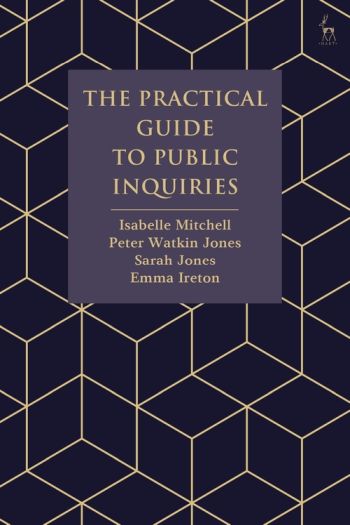
This practical guide provides legal practitioners, participants, witnesses and all those interested in the public inquiry process, stage-by-stage 'hands on' guidance to the process of public inquiries into matters of public concern.
With its user-friendly format of summaries, checklists, 'top tips' and flow charts, this book, the first practical guide to public inquiries, provides guidance from the setting up of a public inquiry through to its close. It includes information on:
Drawing on the authors' extensive experience as public inquiry lawyers, working on inquiries such as the Bloody Sunday Inquiry, Mid Staffordshire NHS Foundation Trust Inquiry, Leveson Inquiry and Grenfell Tower Inquiry, together with contributions from a number of other eminent practitioners in the field, this book provides valuable, comprehensive guidance on the public inquiry process